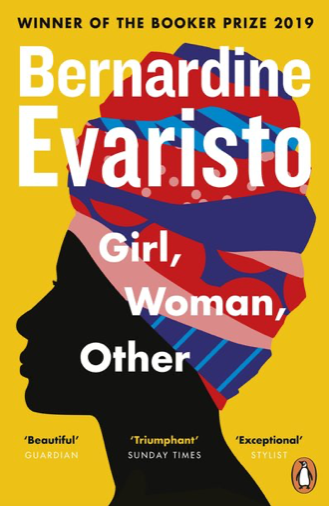Why joining a book club made me less of an "angry" feminist
By Daksha Kapadia
I had seen advertisements for the book club at my local library on noticeboards in said library several years ago and had even gone to join it one year. But upon entering the library and seeing a group of six to seven elderly and white men and women, I had promptly walked out. I was in my mid-twenties. I wasn’t about to join an old person’s book club. I was too embarrassed.
But one of the many, many things I learnt from the first year of the pandemic, was that I wanted to be more proactive with my hobbies. Instead of just doing them as a form of self care for a few hours when I was overwhelmed and stressed, I wanted to invest more time and resources into them and make them more of a regular practice. So, last summer, when the long lockdown ended, I went back to the library and pushing down any embarrassment and apprehension, I sat down and joined them. If only because it was the closest one to me. I was the only person of colour and individual younger than 55.
But they were delighted to have me (maybe they were just excited to have fresh blood). In-fact, they were so kind and welcoming that I felt foolish for being too embarrassed to join them earlier. They also surprised me. That month, (my first book with them), we read Bernardine Evaristo’s Girl, Woman, Other. To begin with, I did not expect them to read books with such strong socio-political messaging. I expected Robert Ludlum style thrillers and Agatha Christie style murder mysteries (not that there’s anything wrong with these fine works of fiction).
But not only did they read it, but they engaged with it enthusiastically and with determination to understand and learn. And then in the next meet-up the following month, they spoke about it and shared their thoughts with a spirit I found admirable. Although, before they spoke they looked at me, almost as if asking permission and apologising at the same time for the opinion they were about to share. While a couple of them disliked how much socio-political messaging there was (they felt it slightly detracted from the story), they found it a refreshing read and a chance to learn more about the black experience, the bisexual experience and the lesbian experience.
And it was in that spirit they asked questions. “What does the I in LGBTQI stand for?” “What is the difference between being gay and being bisexual?” “Can someone be gay and transgender?” True, it wasn’t my responsibility to explain and perhaps not my place either - I am an ally, not a member of the LGBTQI+ community but they took the first step in wanting to learn and understand and only asked when they had determined that I was happy to answer (to the best of my knowledge). If cancel culture has taught me one thing, it is that if people are happy to educate themselves then we should aid them (where we can and if we want to) in doing so. Simply cancelling or dismissing someone because they are not inherently aware does not help them, us or progress.
Although social media is heavy with memes about the stereotypes the ‘boomer’ generation has placed on millennials, as a generation, we have our stereotypes too. And ours include perceiving the previous generation (and especially those who are heterosexual and white) as deliberately and obtusely blind. Blind to the world outside of their own personal one, blind to the struggles of others and blind to awareness. But this blanket stereotype diminishes what it means to be human and humanity’s ability to persist.
Humanity has progressed so far only because people (regardless of race, ethnicity and gender), have looked around them and said, how I help and be part of the change? Before, I go any further, let me say that stereotypes exist for a reason - because for whichever group of people they pertain to, they more or less, to a greater or lesser degree, are true. Previous generations (particularly those more privileged) have enjoyed a limited awareness (or wokeness) of others’ struggles (particularly those less privileged).
But stereotypes give rise to biases - without even realising it we paint entire groups of people in a single brush and therefore miss giving credit where it’s due. The book club left that meeting saying they felt happy having learnt more and with that understanding, were now a little more at ease in what to say, should any of their grandchildren identify as LGBTQI+. As for me, I learnt patience. The experience helped me view the elders around me and their slowness in becoming more “woke” differently - so long as they were trying, that was all I could ask for, especially in a south Asian community where the more common reaction is ostracisation from family and society.
With each subsequent book club meeting, I’m gaining a more balanced view of the world. Although some news and world events still fill me with rage and indignation at the abhorrent manner in which some people are treated, on a day to day basis, more and more, I see people trying. Trying to be better. Trying to learn and educate themselves. Trying to be more understanding and accepting. Trying to help make the world a better place. Who knew that joining an elderly, white book club would help reaffirm my faith in people and make me a better person.

